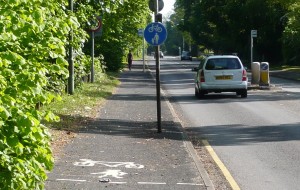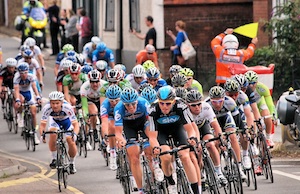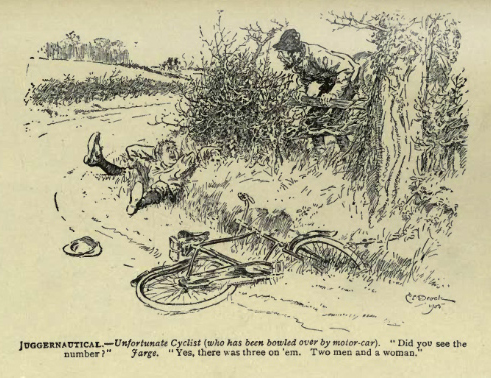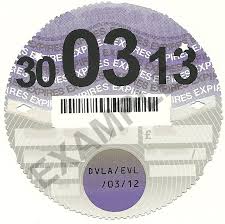 Abraham Lincoln
If given the truth, the people can be depended upon to meet any national crisis...
Abraham Lincoln
If given the truth, the people can be depended upon to meet any national crisis...
 Guildford news...
for Guildford people, brought to you by Guildford reporters - Guildford's own news service
Guildford news...
for Guildford people, brought to you by Guildford reporters - Guildford's own news service
Opinion: The Roads Are For Everyone But We Must Consider Others
Published on: 2 Nov, 2013
Updated on: 3 Nov, 2013
By Martin Giles
Well, well, well, it seems The Dragon has inadvertently opened the flood gates to pent-up feelings about cycling on our local roads.
The coverage originated with a press release from the Lib Dems at County Hall. The Lib Dem leader Hazel Watson claimed that the decision to allow the Prudential RideLondon race through Surrey was taken ‘in private’, i.e. by the Cabinet, without reference to the full council. No one has denied that.
Here is my view as someone who has driven since the age of 17 (and in quite a few countries), cycles, sometimes recreationally, but mostly to go short distances to various parts of Guildford, and walks regularly as a pedestrian.
Firstly the roads belong to everyone. They were not originally built for motor cars as one commentator stated: the North Downs might be a primeval route and the Romans definitely built roads, including some through Surrey.
During the middle ages and up until the 1700s the roads that existed were often in terrible shape, frequently impassable in winter. Turnpiking, (charging tolls), improved maintenance standards no end, especially for horse-drawn coaches.
But then, a century later, trains quickly killed the coaching businesses and the roads, still good, were used mainly for local journeys, including driving livestock to markets. In the late 19th century the invention of the safety bicycle and the empty roads led to a craze in cycling with large groups riding on excursions, especially from London, into leafier parts like nearby Surrey.
 From the early 20th century cars began to proliferate. Ownership was initially limited to the wealthier classes, perhaps that is the reason that pedestrians are expected to give way to cars.
From the early 20th century cars began to proliferate. Ownership was initially limited to the wealthier classes, perhaps that is the reason that pedestrians are expected to give way to cars.
Motorists quickly forgot the debt they owed to preceding road builders, including bicyclists (the Cyclists’ Touring Club and National Cyclists’ Union had created the Roads Improvement Association in 1886).
Anyway, before even one road had been built with motorcars in mind, motorists assumed the mantle of overlords of the road. They were encouraged by the creation of the ‘Road Fund’ administered by the ‘Road Board’ (they named things simply in those days, good for them).
The Road Fund was been set up in the 1909-10 Finance Act. In his ‘People’s Budget’ speech Lloyd George said: “The brunt of the expense at the beginning must be borne by motorists, and to do them justice they are willing, and even anxious, to subscribe handsomely towards such a purpose, so long as a guarantee is given in the method and control of the expenditure that the fund so raised will not merely be devoted exclusively to the improvement of the roads, but that they will be well and wisely spent for that end.”
But ring-fencing of any tax was heretical then, and it’s still heretical now (the TV licence fee, ring-fenced to pay for the BBC, is the exception that proves the rule).
“… motorists are to be privileged for all time to have the whole yield of the tax on motors devoted to roads? Such contentions are absurd…” Winston Churchill
By November 1925, the then Chancellor, Winston Churchill, was fed up with it. In a note he wrote: “Entertainments may be taxed; public houses may be taxed; racehorses may be taxed…and the yield devoted to the general revenue. But motorists are to be privileged for all time to have the whole yield of the tax on motors devoted to roads. Obviously this is all nonsense…Such contentions are absurd, and constitute…an outrage upon the sovereignty of Parliament and upon common sense.”
But the myth that the Road Fund Licence as some persist in calling Vehicle Excise Duty is used for road building and repairs continues in some people’s minds. It seems to have encouraged a feeing of exclusive ownership.
Let me say it straight, motorists don’t own the roads. Everyone has a right to use the highways within the law. So cyclists do have as much right on the roads as lorry drivers, horse riders and motor-bikers.
But we must all use them with consideration for others. It is a moral if not a legal imperative. If we don’t the consequences can be devastating. Using the roads is, for most of us, our riskiest activity.
So drivers must tolerate cyclists and cyclists must consider motorists.
Most of us, cyclists and motorists do but it only takes a few to taint opinions of groups as a whole.
I heard of one cycling club or group echo have set their own rules on their behaviour. They never ride more than two abreast or in groups bigger than six. That is one sensible approach. I am sure also that they don’t shout or gesticulate without proper cause either.
But if large groups of cyclists do remain a problem the police might need to step in. If only to keep the peace.
There is no doubt that some motorists are a real danger, not just to cyclists but to other motorists and pedestrians too. Any cause of delay to their journey, often taken at excessive speed, seems to make them lose all reason and can cause them to behave despicably, even violently. They deserve all they get from the law but too often it is too little.
As for the road closures to allow major cycling events, I live on a road that has been closed for three major cycling events in the county. I have been impressed at how little disruption has been caused and enjoyed joining neighbours in going and cheering on some of our national sporting heroes.
However, if stories are true that some have been imprisoned for many hours, without even pedestrian access, then the event planning and organisation has gone seriously wrong somewhere and county councillors should investigate.
One thing is certain, in our overpopulated part of the world with relentless demands for more houses and yet more people with more vehicles we can only expect more road congestion.
It is in all our interests to keep calm and carry on with even more patience and tolerance.
See also: Lib Dems Criticise Cycle Event Decision Taken ‘In Private’ and comments
Responses to Opinion: The Roads Are For Everyone But We Must Consider Others
Leave a Comment Cancel replyPlease see our comments policy. All comments are moderated and may take time to appear.
Recent Articles
- Guildford Institute’s Crowdfunding Project for Accessible Toilet in its New Community and Wellbeing Centre
- Letter: Guildford – Another Opportunity Missed?
- Letter: GBC’s Corporate Strategy – Where Is the Ambition?
- My Memories of John Mayall at a Ground-breaking Gig in Guildford Nearly Six Decades Ago
- Westborough HMO Plans ‘Losing the Heart of the Street’ Says Resident
- College Invests to Boost Surrey’s Economy and Close Digital Skills Gap
- Community Lottery Brings Big Wins for Local Charities
- GBC Housing Plan Promises ‘A Vibrant Urban Neighbourhood’ Near Town Centre
- Hospital Pillows ‘Shortage’ at the Royal Surrey
- Updated: Caravans Set Up Camp at Ash Manor School


Recent Comments
- Ian Macpherson on Updated: Main Guildford to Godalming Road Closed Until August 1
- Sara Tokunaga on GBC Housing Plan Promises ‘A Vibrant Urban Neighbourhood’ Near Town Centre
- Michael Courtnage on Daily Mail Online Reports Guildford Has Highest-paid Council Officer
- Alan Judge on GBC Housing Plan Promises ‘A Vibrant Urban Neighbourhood’ Near Town Centre
- John Perkins on GBC Housing Plan Promises ‘A Vibrant Urban Neighbourhood’ Near Town Centre
- S Collins on GBC Housing Plan Promises ‘A Vibrant Urban Neighbourhood’ Near Town Centre
Search in Site
Media Gallery
Dragon Interview: Local Artist Leaves Her Mark At One of England’s Most Historic Buildings
January 21, 2023 / No Comment / Read MoreDragon Interview: Lib Dem Planning Chair: ‘Current Policy Doesn’t Work for Local People’
January 19, 2023 / No Comment / Read MoreA3 Tunnel in Guildford ‘Necessary’ for New Homes, Says Guildford’s MP
January 10, 2023 / No Comment / Read More‘Madness’ for London Road Scheme to Go Ahead Against ‘Huge Opposition’, Says SCC Leader
January 6, 2023 / No Comment / Read MoreCouncillor’s Son Starts Campaign for More Consultation on North Street Plan
December 30, 2022 / No Comment / Read MoreCounty Council Climbs Down Over London Road Works – Further ‘Engagement’ Period Announced
December 14, 2022 / No Comment / Read MoreDragon Interview: GBC Reaction to the Government’s Expected Decision to Relax Housing Targets
December 7, 2022 / No Comment / Read MoreHow Can Our Town Centre Businesses Recover? Watch the Shop Front Debate
May 18, 2020 / No Comment / Read More













Bibhas Neogi
November 3, 2013 at 10:48 pm
I enjoyed reading this article. Indeed roads are for all users: pedestrians, cyclists and the motorised ones. A just treatment of all creates a happier environment but restricted space and lack of investment on roads over many years have resulted in congestion in towns and cities.
Many years ago planners were looking at having four ring roads around London. We have got one and a half, that is, the M25 and the North Circular. Revenues raised from taxes on fuel and Excise duties are not ring-fenced. Only about 15% of it are spent on roads. In times of economic difficulties, as it is now, there is a greater demand on spending for benefits and other social needs. Let us hope that the right decision is taken on road and rail strategy and funds directed to where they are needed most.
I do not think the time is right for huge investment on high-speed link like the HS2. The same fund could be used to carry out various improvements to both rail and road systems. Overall creation of jobs would be similar whether it is the HS2 or a number of smaller schemes.
In Guildford, congestion during peak periods must be reduced and better and safer pedestrian routes and cycle lanes could be created. Using road space efficiently through innovative ideas and of course injection of modest funding for modifications and new infrastructures would hopefully relieve congestion to an acceptable level. However, with the growth of the town and increase in numbers migrating to these areas, there will be a need for a longer-term solution in the form of bypasses, viaducts and tunnels to take though traffic out of the town centre.
The A3 needs to be improved. The scheme that has been shelved in 2010 should be resurrected. The problem is not solely the A3; the feeder roads need to flow reasonably well to create a well-functioning network. The idea that putting the A3 in a tunnel would solve the problem is not that simple. If the portals are say, 8km to 9km apart, traffic merging at these locations would create tailbacks on local roads just the same. There are currently five junctions, though some are restricted ones, do distribute the entries and exits over this stretch. We await Councils’ deliberations with the Highways Agency and hope the outcome would be some major improvements in the pipeline.
Paul Bridgland
November 4, 2013 at 8:03 am
A very well researched and interesting piece and I think tolerance is the key message here. I agree that the cycling events are a welcome addition to our local lives, they cause very little disruption and are a great spectacle so I’m absolutely in favour of them.
I am not entirely in agreement regarding motorists, however. Cycling is a very worthy and healthy pursuit but there is a growing band of ‘Lycra louts’ who consider all motorists to be evil and the roads to be their exclusive domain. These people do a big disservice to the more tolerant cyclists, directing rude gestures and fowl language towards car drivers and totally ignoring traffic rules. On more than one occasion I have seen a pedestrian almost run down by one of these idiots running a red light.
I am also tired of all ‘motorists’ being subjected to excessive fines and petty punishments for relatively minor infringements in the name of road safety.
So, for the record, yes, tolerance is what we need but like it or not motorists do fund the cost of road transport, ten times over. They don’t deserve to lay claim to the roads but others should bear in mind that without their money we’d be travelling around on gravel tracks.
I also remain mildly amused by the disdain with which people talk about ‘bad’ car drivers. We all seem to berate these ‘bad drivers’ yet none of us apparently are one of them nor know one personally?
Bernard Parke
November 4, 2013 at 11:22 am
I thoroughly agree with Bibhas.
The situation will only get worse when these proposed new building plans start.
They will greatly effect not only our quality of life in the town centre but will have a devastating on trade.
Perhaps all development should be on hold before it is too late and more businesses are forced to close?